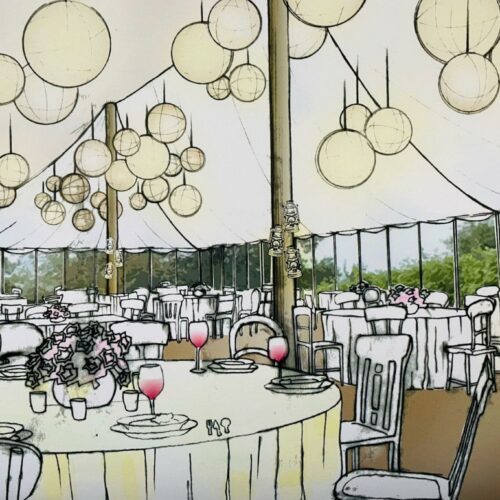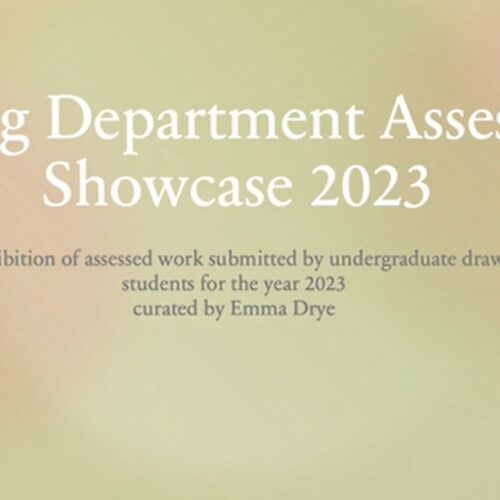
Only Artists
BBC Radio Four is always coming up with bight ideas for new programmes and I’ve particularly been enjoying the 30 minute sessions called ‘Only Artists’, which involve unscripted conversations between people who work in the various creative arts. We’re now on Series 6, although most of the others are still available on BBC Sounds, as indeed is this series. Although all the artists have fascinating things to say, as a creative writer I prick up my ears when writers are talking, to see if I can pick up any tips, or just have that moment where you think…yes, that’s so true!
Wildlife writer Robert Macfarlane spoke to leading landscape painter Norman Ackroyd, who began by saying now much he loves Macfarlane’s books, which include The Old Ways, and The Wild Places. They compared describing the natural world through painting and through words on a page, something Macfarlane has recently celebrated with a book, The Lost Words. They shared their feelings on ‘seriously feeling fear’ while exploring the landscape for the right artistic inspiration. ‘A sort of acid bite’ Macfarlane said. ‘It changes the way I write…the purchase I have’. Macfarlane talked about his most recent book, Underland. The image at the heart of that book are sixty-four thousand year old stencilled handprints on a cave wall. (Creative Writing Foundation students will have and written about this image in their course work). ‘The reddish ochre is spat against the hand and the stone then takes the colour. The symbol interests me so much, when I see those prints I almost see the hand as a gesture of communication’ Macfarlane also talked about rhythm in language. ‘It speaks to the back of the scalp; it does a form of communication that propositional language doesn’t.’ The very last thing Macfarlane does as he finishes a book is…‘speak it back out to myself. The ear can hear in a way the writing mind’s eye can’t…your tongue stumbles if the sentence is too long, or turns a corner too sharply’. Such good advice!
Tune in yourself to listen while Macfarlane talks about redrafting, and learns about Ackroyd’s print-making methods while Ackroyd recalls watching Macfarlane swimming and playing in the bitterly cold water off the remote Tory Island, with a dog and a widow dolphin. ‘An astonishing experience; three species swimming together’. Or try listening to the Scottish Poet Don Paterson, who met the composer Thomas Adès at the Guildhall School of Music. Adès asked about Patterson’s use of notebooks, how some might get abandoned and others returned to in an obsessive way. Adès said that the one thing he envied was that poets didn’t have to produce ‘hours and hours of little black dots’ on paper. Patterson, on the other hand was inquisitive about the collaboration Adès has to undergo to get an opera or symphony performed. Patterson had been asked to create a libretto and found the work ‘frustrating and difficult’. Neither of them felt they had an infallible gut instinct about what worked and what didn’t. Don Paterson explained how he looked at the ‘minimal number of prompts I can offer the reader to complete this picture’, citing Robert Frost’s methodology. The composer loved this description, and came back with a great metaphor for poetry. ‘It’s as if you’re vibrating to the world’ .
Another Scottish poet, Jackie Kay Jackie Kay, author of The Adoption Papers, and currently the Scottish ‘Makar’ (poet laureate), had a half-hour conversation with Lubaina Himid, the first black woman to win the Turner Prize. They talked about how early learnt skills feed into their creative work. Kay spoke of the ‘putting in and pulling out’ of writing poetry, how she feels her poems have a ‘back and forth’ effect for both the writer and their inspiration, as well as the reader. She spoke of how she’d heard Toni Morrison say that she wrote her books because she couldn’t find the characters she wanted to read. This came out of the fact that Himid admitted she couldn’t much talk about race or colour to her mother, after they’d emigrated to Britain. Kay felt Himid might have allowed her feelings to be quietly expressed in her art, while Kay has written widely about tracing and finding her Nigerian birth family in her memoir, Red Dust Road.
Award-winning playwright Hossein Amini chatted deeply about scriptwriting to screenwriter Conor McPherson, most recently feted for his TV series McMuffin. McPherson asked Amini if ‘you can write without pain’. Amini explained how, after a good day’s writing, ‘I float’, while after a bad day, ‘I torture myself…that’s the nature of the addiction…’ McPherson didn’t believe writing was an addiction, but a ‘function of your need to live. You are the god in the writing, reflecting the world like a snow globe’, extending that metaphor to suggest that what you pour into the globe becomes your story and can be seen from all sides. McPherson described how he often gives carte-blanche to actor interpretation when directing his own scripts; ‘it’s only when you work with actors that you realise what is good and what is not. Two dimensions become three’.
Joanne Harris has written more than fifteen novels plus collections of short stories, including Chocolat and Blackberry Wine. She was talking with the composer Howard Goodall so it was natural that the musicality of words would come up. They both agreed that it didn’t matter what sort of work they were undertaking, the important part was to enjoy the work. Goodall writes church music, film music, even music for adverts, but puts equal importance to each piece. Harris spoke of the pressure of conforming to the bandwagons that novelists are put under; ‘they told me not to write about food, to always set my stories in cities and to feature young characters. So I wrote about chocolate, set my story in provincial France, and featured old people’.
You can find out more about these writers by clicking on the links at their names, and find others talking together or with other artists during the six series of this radio programme. Go to https://www.bbc.co.uk/programmes/b08ltbhl/episodes/player to check out poet Hollie McNish, crime doyenne Louise Welsh, award-winning Irish writer Sebastian Barry and Amma Asante, among others, to hear writers and other artists chatting from the heart, spilling out observations that ring so true.
Image: Richard Long meets Nitin Sawhney, LHS: Nitin Sawhney’s handprint and doodle RHS: Richard Long’s handprint and signature. https://www.bbc.co.uk/programmes/p04z17b0/p071q15r
|
|







I’ve listened to some of these discussions and they are fascinating especially the one between Robert Macfarlane and Norman Ackroyd. And I’d recommend Macfarlane’s Lost Words as essential reading for all writers.
Thank you Nina. Look forward to listening to these. Richard Hawley is lined up first. Sheffield has been influential on his work – a source of inspiration. Looking forward to seeing the musical “Standing at the Skye’s Edge”, his collaboration with writer Chris Bush.
This programme is so good and gives a terrific insight into creativity as well as no small amount of reassurance. I loved the one with Rose Wylie and Stewart Lee, oh too many favourites to mention.